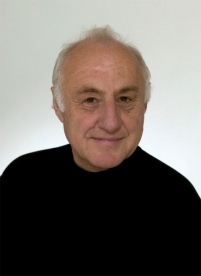The 3rd BioProcessing Asia conference will take place November 12-15, 2018 on Langkawi, Malaysia. This week, Bioprocess Development Forum talks with John Curling, Conference Chair, about the upcoming event.
 What is the basic concept for the BioProcessing Asia (BPA) conference series?
What is the basic concept for the BioProcessing Asia (BPA) conference series?
Until 2014, when we held the first BPA conference, Asia lacked a forum for a science and technology-focused discussion on best practices for the development of biopharmaceuticals. We founded BioProcessing Asia to enable scientists from academia and industry, and from the East and West, to meet in an environment where the most recent achievements, breakthroughs, and technological advances could be debated without commercial interference.
Recognizing the diversity of patient needs across Asia, the lack of attention to many endogenous disease states and the rapidly developing socio-economic pressures on healthcare systems, we developed a program with a holistic and interdisciplinary approach to bioprocessing. The program always covers the entire biopharmaceutical spectrum from antibodies and blood plasma products to vaccines as well as biosimilars development. BioProcessing Asia also differentiates itself from other conferences in Asia with significant academic participation.
We believe that attending BioProcessing Asia 2018 will provide a unique opportunity for participants to meet with and learn from key industry and academic leaders. Attendees will leave with new knowledge and ideas that will contribute to improved biological products serving the Asian communities.
What news would you like to highlight regarding the recently announced 3rd BPA conference?
We are very pleased to announce the newly formed Scientific Advisory Committee with very well-recognized members. They all have long-term experience in biopharmaceutical development in Asia and iconic academics with consultative roles will guide the BPA 2018 program.
The session titles have also recently been announced:
• Diseases, treatments and the future of biopharmaceuticals
• Innovation and creative technology implementation
• Change and challenge in the regulatory environment in Asia
• Prevention rather than cure: vaccine development and manufacturing trends
• Plasma product biotechnology: the changing environment
• Theory and practice of facility design, process economics and lean manufacture
Unlike many other conferences. BPA invites the submission of abstracts for oral and poster presentations. One new element is that there will be time allocated in the program for a limited number of brief oral deliveries from selected poster presenters prior to the formal Poster Session. We believe this will enable a lively exchange of ideas and thoughts.
A specific topic you think will be in focus in November during the BioProcessing Asia conference?
There are perhaps two topics at the opposite ends of the manufacturing scale: development of high-volume antibody processes and then cell based therapies.
As the monoclonal antibody industry moves toward larger patient groups demanding high-volume manufacturing, it has much to learn from blood plasma fractionators who produce 150 tons of immunoglobulin annually. Polyclonal products are sold at a fraction of the price, a good reason to include fractionation in the program as an example of low cost manufacturing.
At BPA 2016, a presentation addressing challenges in the development of advanced therapy medicines attracted much attention. Given approvals of gene and cell therapy treatments in 2016-2017 and recent reports of positive clinical trial outcomes for the AAV-FVIII gene therapy treatment of Hemophilia A, I believe that development of these products and their effects on patient access to treatment of hereditary and acquired diseases will be hot topics of discussion at BPA 2018.
Read more Q&As here